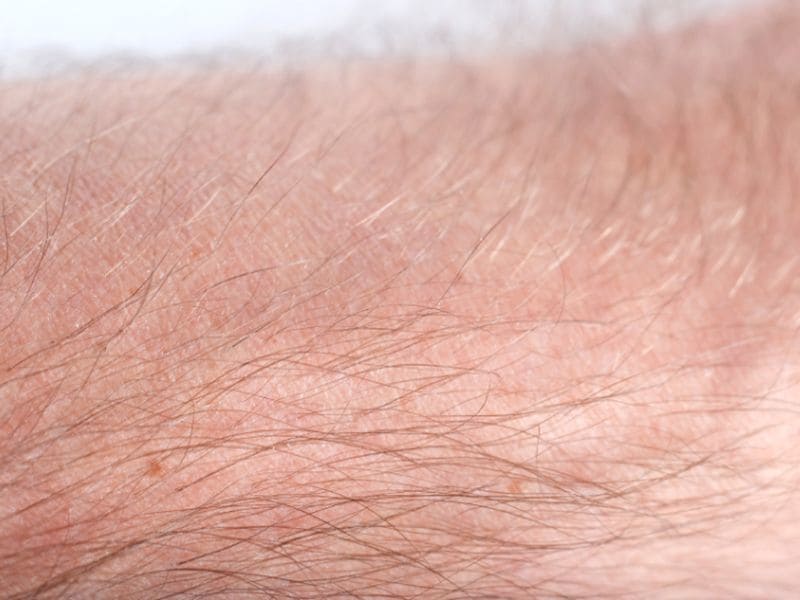
Have you ever wondered why hair grows on some parts of your body, but not others?
New research offers a possible explanation. Scientists found that hairless skin secretes a protein that blocks a signaling pathway (WNT) that controls hair growth.
Called Dickkopf 2 (DKK2), the protein is found in specific embryonic and adult tissues and has a variety of functions, the University of Pennsylvania researchers explained.
They found that plantar skin from mice — similar to the underside of the human wrist — had high levels of DKK2. When they genetically removed DKK2 from the mice, hair began to grow in this normally hairless skin region.
“This is significant because it tells us WNT is still present in hairless regions, it’s just being blocked,” said study co-senior author Sarah Millar, director of the Penn Skin Biology and Diseases Resource-Based Center.
“We know that WNT signaling is critical for the development of hair follicles; blocking it causes hairless skin, and switching it on causes formation of more hair,” Millar said in a Penn news release.
“In this study, we’ve shown the skin in hairless regions naturally produces an inhibitor that stops WNT from doing its job,” she added.
Hair follicles develop before birth. This means that hair follicles don’t regrow after severe burns or deep wounds. The researchers are currently investigating whether secreted WNT inhibitors suppress hair follicle development in such cases.
More than 80 million people in the United States have male- or female-pattern baldness, according to the American Academy of Dermatology. Previous research suggests that DKK2 may be associated with this condition, meaning it could be a potential target for treatment.
“We hope that these lines of investigation will reveal new ways to improve wound healing and hair growth, and we plan to continue to pursue these goals moving forward,” Millar said.
The study was published Nov. 28 in the journal Cell Reports.
More information
The American Academy of Dermatology has more on hair loss.
Source: HealthDay
Copyright © 2026 HealthDay. All rights reserved.

Leave a Reply